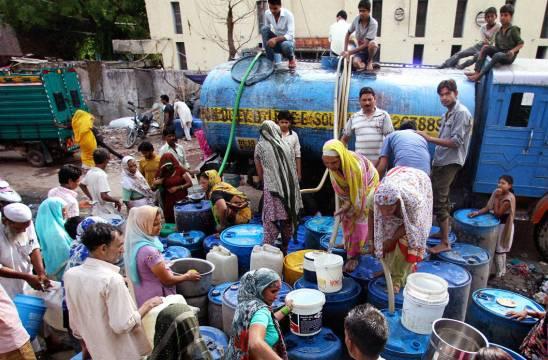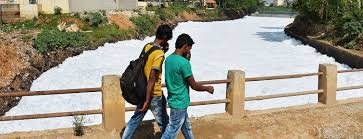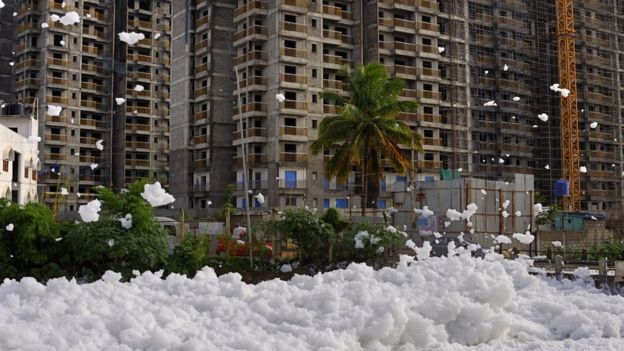Water, Green - Indian Tech Center Running Dry
India's high tech hub of economic growth is in danger of becoming the nation's first city to run out of water. Uncontrolled growth is threatening the future of Bangalore.
"This city was renowned for its trees, lakes, and pleasant air only 25 years ago," said ecologist TV Ramachandra, head of the Energy and Wetlands Research Group at the Indian Institute of Science. "Now it is a dead city, which has sacrificed its environment for some of the fastest economic growth seen anywhere in the world," he added. Mr. Ramachandra is projecting that the capital city of Karnataka state could be the first Indian city to run out of water. "If the current trend of growth and urbanisation is allowed (to continue), by 2020, 94 percent of the landscape will be concretised."
And still the development continues. More than a thousand water tankers fill up at bore holes to make daily deliveries to the homes, apartments, and businesses that can afford it - roaring past the slums, shanties, and plywood stores that can't. They reach an ever-increasing number of new apartment blocks, some of which developers don't even bother to hook up to the region's water mains. With names like "Strawberry Fields" and "Dream Acres", the new developments are built over lakes and ponds that were filled in and covered with concrete.

This insatiable raiding of water from bore holes has caused the ground water table to decline in places from 28 metres down to 300 metres deep. Vegetation has decreased by 88 percent, wetlands by 79 percent, meaning that watersheds have an extremely diminished capacity. Normal rainfall - which Mr. Ramachandra says would be more than sufficient to supply the urban area of almost 12 million people, if only there were an effort to collect it - now has nowhere to go, causing frequent flooding.
And then there's waste disposal, in a country already known to have more mobile phones than toilets hooked up to sewers. "There is nowhere for the waste to go, and the lakes have been killed," said Ramachandra. Lake Bellandur has become so toxic it spontaneously catches fire; it churns up white froth in such volumes that authorities had to build barriers to keep it from spilling onto the road.


The government is not likely to feel any pressure to do something about the looming crisis as long as it continues its policy of delivering clean water to households at heavily subsidized rates. "In Bangalore, 1,000 bottles of the cleanest treated water comes to our doorstep and we pay only six rupees," which is about 12 Australian Pennies; "The incentive is not there," said AR Shivakumar, a senior scientist with the Karnataka State Council of Science and Technology.








 Create PDF
Create PDF Print
Print Email to friend
Email to friend